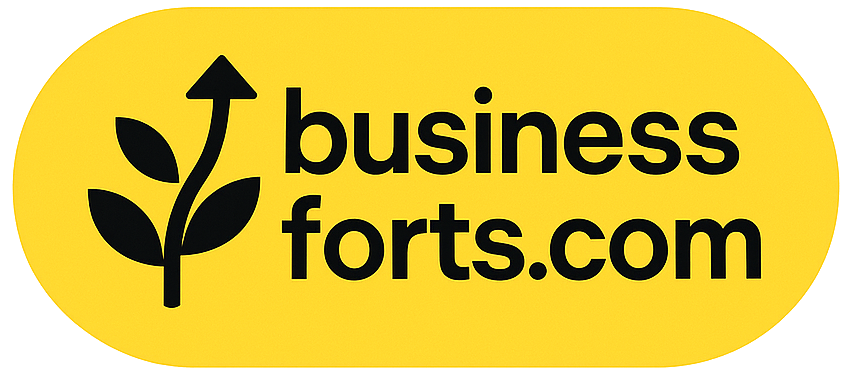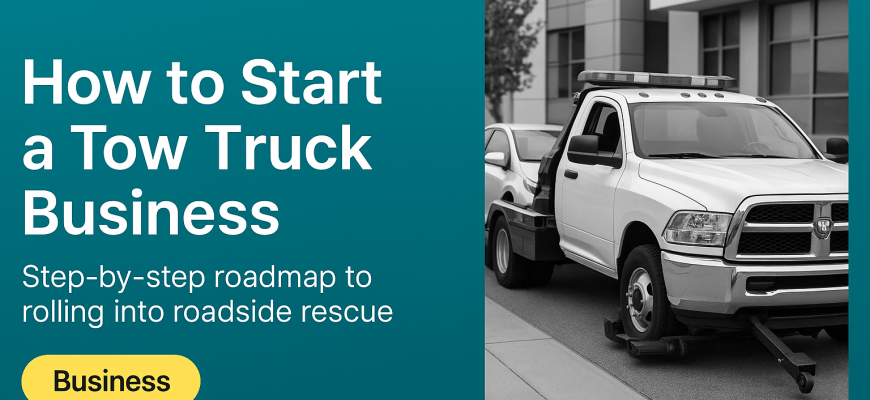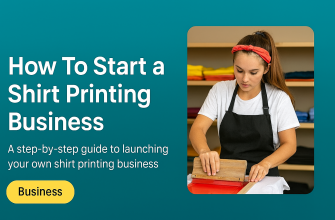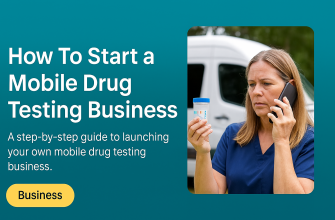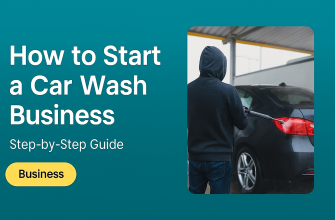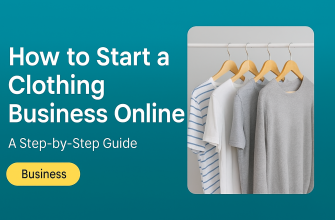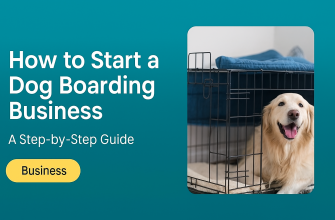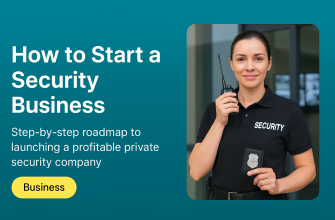Starting a tow truck business can feel intimidating – especially in an industry traditionally dominated by men – but it’s absolutely achievable and potentially very profitable. In fact, the U.S. automobile towing industry generated about $8 billion in revenue in 2019, proving that a towing company can thrive with the right approach. If you’re a woman new to entrepreneurship, remember: you belong in this business too, and you can succeed.
Ready to turn your towing dream into reality? This comprehensive guide will walk you through step-by-step how to start a tow truck business in the United States – from the practical startup steps to motivational tips to keep you inspired. Let’s dive in!
- Step 1: Plan Your Tow Truck Business
- Step 2: Take Care of Legalities, Licensing, and Permits
- Step 3: Estimate Startup Costs and Secure Funding
- Step 4: Acquire Your Tow Truck and Equipment
- Step 5: Protect Your Business with Insurance
- Step 6: Build Your Team and Operations (Hiring and Training)
- Step 7: Market Your Towing Business and Attract Clients
- Empowering Your Journey in the Towing Industry
Step 1: Plan Your Tow Truck Business
Every great business begins with a solid plan. Start by outlining exactly what your towing business will do and how it will operate. Will you offer 24/7 roadside assistance? Focus on towing for auto repair shops or impound services for law enforcement? Perhaps you’ll specialize in long-haul towing of heavy vehicles, or even a niche like luxury car towing. Defining your services and target market will shape all your other decisions.
Research the Market: Look into your local market demand and competition. How many towing companies operate in your area? What do they charge and what services do they offer? This research will help you identify opportunities to stand out – maybe there’s demand for a reliable 24-hour tow service, or a need for a tow operator in a neighboring town.
Write a Business Plan: A business plan is your roadmap. It doesn’t have to be lengthy, but it should cover the essentials: your service offerings, target customers, pricing strategy, projected expenses and revenues, and growth plan. This plan not only guides you but is also key if you need funding – lenders or investors will want to see it. Include a basic marketing plan (how you’ll get customers, which we’ll cover later) and an operations plan (hours, whether you’ll dispatch calls yourself or use a service, etc.). Also, map out a business budget. List all the one-time startup costs and ongoing monthly expenses (we’ll discuss typical costs in a moment). Planning finances early on will prepare you for success and prevent unpleasant surprises down the road.
Choose a Business Name and Structure: Pick a memorable name that reflects your brand (and make sure the domain name is available for your website). Decide on a business structure – many small towing startups register as an LLC (Limited Liability Company) to protect personal assets, but you could also choose a sole proprietorship or corporation. An LLC is often recommended as it separates your business assets from personal ones (important in a high-liability field like towing). Once decided, register your business with your state and obtain an Employer Identification Number (EIN) if you’ll have employees.
Tip: The towing business can be challenging, but it’s also often recession-proof. Cars will break down or need towing in any economy, which means steady demand. Keep this in mind as you plan – you’re entering a field with reliable need.
With a clear plan in hand, you’ll feel more confident moving forward. Now let’s get all the legal details sorted.
Step 2: Take Care of Legalities, Licensing, and Permits
Starting a tow truck business means dotting all the i’s and crossing the t’s on legal and regulatory requirements. This step might seem tedious, but it’s crucial to operate legally and avoid hefty fines or shutdowns. Here’s what you need to handle:
-
Business Registration & License: Ensure your business is properly registered with the state and obtain any required general business license from your city or county. This license gives you the authority to operate in a locality.
-
Commercial Driver’s License (CDL): If you’ll be driving the tow truck (or hiring drivers), a CDL is typically required. Most states require a CDL for heavy vehicles or those towing above a certain weight. For example, operating a tow truck that’s over 26,000 lbs gross vehicle weight (or towing another vehicle over 10,000 lbs) usually requires a Class B CDL. Even if your truck is lighter, having a CDL is highly recommended – it boosts your credibility and might be mandatory for towing in many jurisdictions. Make sure you or your drivers have a clean driving record and the proper training to pass any CDL exams.
-
Tow Truck Operator Permits: Many states and cities have specific permits or licenses for towing businesses. Check your state’s Department of Transportation (DOT) or licensing agency for towing-specific requirements. For instance, Texas requires tow companies to obtain a Texas Department of Licensing and Regulation (TDLR) tow truck operator license (and a permit for each tow truck). Other states (like Washington) mandate a special tow operator business license and even a surety bond for towing companies. Generally, you may need some combination of: a tow truck company license, a permit for each vehicle, and possibly additional endorsements if you perform certain types of tows (such as law enforcement tows or private property impounds).
-
USDOT Number: If your tow truck is large (over 10,000 lbs) or if you plan to tow vehicles across state lines (interstate commerce), you will likely need to register for a USDOT Number with the Federal Motor Carrier Safety Administration. The USDOT number is an identifier that tracks safety and compliance records for commercial vehicles. Some states even require a USDOT number for intrastate commercial towing operations above certain weight thresholds. Check your state’s DOT regulations – it’s better to obtain one if required than face penalties later.
-
Special Permits (as needed): Depending on your services, you might need additional permits:
-
If you will tow vehicles at the request of law enforcement (e.g. for accidents or impounds), you might need an Incident Management Permit or similar, which allows towing without the vehicle owner’s consent when police request it.
-
For private property towing (removing illegally parked cars from private lots), some states require a private property towing permit or a contract with the property owner .
-
If your truck itself is oversized or heavy, you may need an oversize/overweight vehicle permit to legally operate it on public roads.
-
If you plan to operate a tow yard for storing vehicles, you might need an impound lot license or to comply with specific regulations for storing vehicles.
-
-
Insurance and Bond Requirements: (We’ll cover insurance in detail in the next step, but note that some states require proof of insurance or even a surety bond as part of the licensing process.) For example, a state might ask for a surety bond (a financial guarantee) to ensure you follow regulations and responsibly handle vehicles.
Pro tip: Contact your state’s Business Licensing Department or Department of Transportation early on. They can provide a checklist of everything you need to operate a towing business legally in your state. It might seem like a lot of paperwork, but once this is done, you’ll have peace of mind that your business is compliant.
Getting your legal ducks in a row might involve fees (for licenses, permits, registrations) and a bit of patience waiting for approvals. But don’t skip this – towing is a regulated industry, and being fully licensed is also a selling point to customers. It shows you’re professional and trustworthy.
Step 3: Estimate Startup Costs and Secure Funding
One big question at the start: How much will it cost to launch your tow truck business? The answer: it depends on how big you start, but be prepared for significant upfront investment. Let’s break down the typical startup costs and then discuss funding options to help you cover them.
Breakdown of Startup Costs: Initial expenses for a towing business can include:
-
Tow Truck Purchase: This will likely be your largest expense. A brand-new rollback flatbed tow truck can easily cost around $100,000 (or more). Heavy-duty wreckers (for big rigs) can run from $150,000 up to $500,000 for top-of-the-line models. If those numbers made your jaw drop, don’t worry – you can start with a reliable used tow truck for far less. Used tow trucks might cost anywhere from $20,000 to $50,000+ depending on age and condition. In fact, many entrepreneurs start with a used truck to keep costs down and upgrade later. Plan on at least one truck to start (perhaps you driving it), or more if you have partners/drivers from day one.
-
Equipment and Tools: Beyond the truck itself, you’ll need equipment like towing chains/straps, hooks, winch, lights, and possibly tools for roadside assistance (jacks, jumper cables, tire-change tools if you’ll offer those services). Don’t forget safety gear (reflective vests, cones, flares) to keep you and your customers safe at roadside scenes. Budget a few thousand dollars for these initial supplies, though some trucks may come pre-equipped with basics.
-
Licenses and Permits Fees: In Step 2 we covered the various licenses/permits. Allocate some budget for application fees: business registration, CDL licensing/testing, permits, etc. This could be a few hundred up to a couple of thousand dollars total, depending on your state’s fees.
-
Insurance: Towing insurance is a must-have ongoing expense (we’ll detail this in the next section). Initially, you might need a down payment or first month’s premium. Annual premiums for towing businesses can be quite high (several thousand dollars per truck per year is common), reflecting the risks. Plan accordingly – insurance will be a significant cost.
-
Office or Yard Space: If you need an office, garage, or storage lot for vehicles, consider startup costs like security deposits or initial rent. Many small tow operators start by working from home (using a cell phone as the dispatch line) and only lease a storage yard if they plan to impound vehicles. If your business model doesn’t require holding cars long-term, you might avoid this cost initially.
-
Branding & Marketing: Initial marketing costs might include designing a logo, building a simple website, printing business cards or flyers, and maybe painting your truck with your company name or wrapping it with branding. You can start lean here – a basic website and some business cards/pamphlets might run a few hundred dollars if you do it yourself or use affordable services.
-
Miscellaneous and Working Capital: Don’t forget other costs like fuel for the truck (a big ongoing expense), maintenance/repairs, a computer or phone line for the business, and some working cash for the first few months when revenue might be slow. It’s wise to have some reserve funds for surprises.
In total, startup costs can vary widely. If you start with one used truck, working from home, you might keep the startup budget relatively low (perhaps in the $10,000-$20,000 range, especially if you already have some equipment or are leasing the truck). However, for a more typical setup buying a decent truck, getting all insurance and permits, etc., it’s not unusual for initial investment needs to be $50,000 or more. In some cases, entrepreneurs invest $150,000+ to launch a full-featured towing operation with new equipment.
Don’t be discouraged if these figures sound high – there are ways to secure funding and lighten the load:
Explore Funding Options:
-
Savings / Bootstrapping: If you have personal savings you can invest, this is the most straightforward route (often called bootstrapping). The upside is you won’t incur debt and retain full ownership. The downside is the financial risk is all on you. If you go this route, be disciplined – invest what you can afford and keep a cushion for personal emergencies.
-
Business Loans: Many towing businesses are started with the help of a small business loan. Start by talking to your bank or credit union about a loan for your startup. Keep in mind, traditional banks can be cautious lending to new businesses without a track record. Be prepared to show a solid business plan and possibly collateral (something to secure the loan). One specific option is equipment financing or commercial truck loans. These loans are designed to help you buy vehicles or equipment; the tow truck itself often serves as collateral for the loan, which can make lenders more willing to lend even if you’re a first-time business owner. Additionally, look into SBA loans or microloans – the U.S. Small Business Administration has programs (like the SBA Microloan program) targeting new entrepreneurs, including women, that offer smaller loan amounts with reasonable interest rates.
-
Grants and Special Programs: Free money for your business – sounds great, right? There are grants out there, especially for women entrepreneurs. They can be competitive, but it’s worth researching. For example, the Amber Grant Foundation awards $10,000 monthly grants to female entrepreneurs (with a chance at an additional annual grant). Many local governments or nonprofits also have small business grants for startups, or specifically for women, minorities, or veterans. Check with your local Small Business Development Center (SBDC) or women’s business organizations in your state – they often know about regional grants or contests. While you shouldn’t rely solely on winning a grant, landing one can give your towing business a fantastic early boost without adding debt.
-
Friends and Family: It’s common for new entrepreneurs to seek help from personal networks. If you have family or friends willing to invest or lend to your business, approach the topic professionally. Treat it like a business deal – draft an agreement on whether it’s a loan (and repayment terms) or an equity investment. This can provide more flexible support, but be sure not to jeopardize relationships; communicate clearly and honor your commitments.
-
Partnerships: Perhaps you know someone who shares your dream of a towing business. Joining forces with a partner can mean shared financial burden (and they might bring additional capital). Just make sure to have a clear partnership agreement and align expectations. Sometimes one partner provides funding while the other provides labor/industry know-how.
-
Financing the Truck: If buying a tow truck outright is too expensive initially, consider financing or leasing a tow truck. Many dealers or specialty lenders offer financing for commercial vehicles. Leasing might require less money down than buying. The trade-off is you’ll have monthly payments, but if those payments are covered by your business income, it can be a workable strategy. Just be careful not to overextend – be realistic about what monthly payment your new business can handle.
When planning your funding, try to estimate not just the money to open the doors, but also enough working capital for at least 3-6 months of operations. It often takes some time to build up a client base. Having a financial cushion ensures you can pay bills, maintain your truck, and keep going as you grow.
Remember: Every dollar you invest in yourself is a step toward owning an independent business that you control. Whether you use loans, savings, or grants, think of it as investing in your own future success and financial independence.
Step 4: Acquire Your Tow Truck and Equipment
With your plan and financing in place, now comes the exciting part – getting your tow truck! This is the literal vehicle of your business, so choose wisely.
Choosing the Right Tow Truck: For a new towing business, a flatbed tow truck (also known as a rollback) is often the best choice for versatility. Flatbeds have a long empty bed that tilts, allowing you to load a car easily and securely. They can handle a wide range of vehicles (from motorcycles and cars to SUVs and small trucks) without dragging them, which prevents damage. Most customers (and roadside assistance clubs) love flatbeds for this reason.
Other types of tow trucks include hook-and-chain wreckers and wheel-lift trucks (which lift one end of the car off the ground). These tend to be used for shorter tows or junk cars – they’re not as gentle on vehicles, so they’re less popular for modern towing needs. There are also integrated heavy-duty wreckers, which have an embedded boom and wheel-lift – those are used for big jobs like buses, trucks, or heavy equipment. If your business plan is to tow heavy vehicles, you might need a heavy-duty integrated truck or even a rotator crane-style truck (very expensive). But if you’re starting small, stick with a good medium-duty flatbed; it will cover most common jobs.
New vs. Used: As discussed in funding, a new tow truck is nice to have (warranty, latest features, and that new-truck shine) but comes with a hefty price tag (think six figures). A used tow truck can be a smart option to start with. You can often find used tow trucks through online marketplaces, auctions, or local truck dealers. Inspect carefully – ideally have a mechanic experienced with tow trucks look it over. You want to ensure the engine, transmission, hydraulics for the bed or winch, and other critical parts are in good shape. Check the mileage and maintenance history. A well-maintained older truck can serve you well until you’re ready to upgrade or add additional trucks.
Acquire Essential Equipment: Along with the truck, gather the equipment you’ll need for daily operations:
-
Towing and Recovery Gear: This includes tow chains or heavy-duty straps, a winch (most flatbeds have one), tow hooks, wheel skates (to move cars that can’t roll), and load binders to secure vehicles on your flatbed.
-
Lights and Signage: Make sure your truck has proper warning lights (beacon or strobe lights) required by law so you’re visible when parked roadside. Have flares or reflective triangles to put out at a scene. Also, equip the truck with a working spotlight or flashlight for night calls.
-
Tool Kit: Keep basic tools for roadside assistance if you offer it – e.g. a jack and spare tire tools (for tire changes), jumper cables or a jump pack (for dead batteries), basic wrenches and screwdrivers, a fuel can if you do fuel delivery calls, and possibly lockout kits (to help people locked out of cars).
-
Communications: A reliable mobile phone (dedicated to the business) is a minimum for dispatching and taking customer calls. You might also consider a CB radio or two-way radio system if you’ll have a dispatcher or multiple trucks, but a cell phone is fine to start. There are also dispatching apps and GPS systems you can use to manage calls and track your truck – something to explore as you grow.
-
GPS and Navigation: A good GPS unit or a smartphone with navigation apps will be your best friend in finding customer locations quickly and choosing the best routes (especially when towing a vehicle and possibly avoiding low bridges or weight-restricted roads).
-
Personal Safety & Comfort: Don’t forget things like work gloves, a reflective safety vest (essential when working near traffic), sturdy boots, and weather-appropriate gear (raincoat, warm clothes for winter, sun protection for summer). You’ll be out in all conditions. Maybe keep some water and snacks in the truck, too – long waits can happen!
Once you have your truck, get it registered and insured before hitting the road (more on insurance next). Also, consider branding your truck with your company name and phone number. A professionally lettered or wrapped tow truck not only looks legit but also acts as rolling advertisement everywhere you go. A bright, memorable color scheme (like the famous pink tow truck in our earlier story) can make you stand out. Just ensure any branding still complies with regulations (some states require specific markings or DOT numbers displayed on commercial vehicles).
Maintenance Plan: From day one, treat your tow truck well. Set up a maintenance schedule – regular oil changes, brake checks, tire rotations, and inspecting towing equipment for wear. A breakdown of your tow truck can halt your business, so proactive maintenance is key. This also ties into costs: be prepared for maintenance and repair expenses. Over time, setting aside part of your earnings for a “maintenance fund” is wise.
Now that you have the wheels to power your business, let’s talk about protection – because towing can be risky, insurance is your safety net.
Step 5: Protect Your Business with Insurance
Operating a tow truck business means you’re dealing with valuable vehicles, roadside hazards, and potential accidents – so insurance is not optional. It’s absolutely essential for protecting your financial security (and many states require certain coverages before you can even get your licenses or permits).
Here are the key types of insurance you’ll need for a towing business:
-
Commercial Auto Liability Insurance: This is the big one. Auto liability insurance covers bodily injury or property damage to others if you or your driver is at fault in an accident while driving the tow truck. For example, if you accidentally damage someone’s car or fence while towing, or cause an accident, liability insurance pays the claims up to your coverage limits. States set minimum liability coverage for commercial vehicles, but you’ll likely want higher limits given the risks. This protects you from having to pay out of pocket for costly lawsuits or repairs.
-
Physical Damage Coverage: This covers damage to your tow truck itself. It usually has two parts:
-
Collision coverage (if your truck crashes or overturns), and
-
Comprehensive coverage (if your truck is damaged by things like fire, theft, vandalism, or even hitting an animal). For instance, if a tree falls on your parked truck or someone steals equipment off of it, comprehensive insurance would cover that. Given the price of tow trucks, you definitely want coverage to repair or replace your truck if something happens.
-
-
On-Hook Towing Coverage: This is specific to towing businesses – it covers damage to a customer’s vehicle while it’s in your care, hooked up to your truck or on your flatbed. Imagine you’re towing someone’s car and get into an accident, or the car somehow sustains damage during the tow – on-hook coverage would pay for that damage to the customer’s vehicle. Without it, you’d be liable to pay for repairs to the customer’s car, which could be very expensive. Many insurance packages for tow companies include on-hook coverage, but be sure to verify it.
-
Garage Keepers Liability: If you will be storing customer vehicles (for example, you have a yard where you keep cars before they go to a repair shop or impound), garage keepers insurance covers damage or theft of vehicles while they are in your possession on your property. If you’re not storing vehicles, you might not need this, but if you are (say, doing impounds or holding cars for a fee), this is important.
-
General Liability Insurance: This is a broader business liability policy that covers things not directly involving the tow truck on the road. For example, if a customer slips and falls at your office or an incident happens not involving driving, general liability would cover it. It’s a good idea for any business, towing included, to have general liability coverage in addition to auto liability.
-
Workers’ Compensation Insurance: If you hire employees (other drivers, dispatchers, etc.), most states require workers’ comp insurance. This covers medical bills and lost wages if an employee is injured on the job. Towing can be a physically demanding and sometimes dangerous job (traffic, heavy equipment), so you want your team protected. Even if not required (say you’re the only “employee”), consider what would happen if you got injured. Health insurance might cover medical, but not lost income. Once you start hiring, workers’ comp is a must.
-
Uninsured/Underinsured Motorist Coverage: This protects you and your driver if another driver causes an accident and doesn’t have insurance. For example, if your truck is hit by a driver with no insurance, this coverage would pay for injuries or damage to you when the other party can’t. It’s often included in commercial auto policies, but check and opt for it if not.
Insurance costs for a tow truck business can be a significant chunk of your budget. Rates depend on many factors: your location, your driving record (and those of any employees), the type of towing you do (higher-risk operations like repossessions or heavy-duty towing might cost more), the value of your truck, etc. It’s wise to shop around with multiple insurance providers that specialize in commercial auto or towing insurance. An insurance broker who understands the towing industry can help you get the right coverage mix.
Tip: Ask other tow truck owners or mentors for insurance company recommendations. Sometimes industry associations for towers have group insurance programs or preferred providers.
Once insured, keep proof of insurance in your vehicle and at your office. Also, create a habit of safety to possibly lower costs long-term – some insurers give better rates if you have safety training, secure parking for your truck, or if you implement GPS trackers/telematics that monitor driving behavior.
In short, insurance may feel like an expensive bill, but it turns a potentially business-ending accident into a recoverable hurdle. It’s protection for the dream you’re building.
Step 6: Build Your Team and Operations (Hiring and Training)
In the beginning, you might be a one-woman show – owner, dispatcher, and driver all in one. That’s totally fine! Many tow business owners start solo, handling everything from taking calls to towing the cars to doing the bookkeeping at night. In those early stages, you’ll wear many hats and learn every aspect of the business. This hands-on experience is valuable and helps you understand exactly what skills you’ll look for when you’re ready to hire help.
When to Hire: As your business grows and the phone starts ringing more often, you’ll reach a point where you can’t (or don’t want to) do it all alone. If you’re getting more tow requests than you can handle, or if you want to offer faster response times, it’s time to consider hiring. The first hire for a towing company is often another driver. Adding a second driver (with another truck) means you can serve more customers or cover more hours (e.g. one of you could cover day shifts and the other nights, or you can handle two calls at once). You might also hire a dispatcher or office assistant once there’s enough call volume – someone to answer calls, dispatch jobs to drivers, handle paperwork, etc., which frees you to focus on the field work or vice versa.
Hiring Drivers: When bringing on a tow truck operator, you’ll obviously need someone with the proper license (CDL) and a clean driving record. Beyond that, look for reliability and people skills. Remember, towing is often about helping people in stressful situations (a breakdown, an accident, etc.). A driver who is polite, patient, and professional will reflect well on your business. Trustworthiness is key too – you’ll likely run background checks and drug tests as required (some states mandate this for tow operators). It’s also a good idea to have a training period where a new driver rides along with you (or an experienced driver) to learn your procedures, routes, and customer service approach. Even if they have towing experience, every company has its own way of doing things.
Employee Training and Policies: Develop some basic training materials or a handbook. Cover important topics like:
-
Safe driving practices and obeying all traffic laws.
-
Proper use of all towing equipment (to avoid damage to vehicles).
-
How to handle various roadside situations safely (like loading a car on a busy highway shoulder, or dealing with an angry vehicle owner in an impound scenario).
-
Customer service expectations – e.g., arriving as quickly as possible, wearing a company shirt or proper ID, greeting the customer politely, and explaining what you’re doing with their vehicle.
-
Communication protocols – how to update dispatch (even if that’s you) when a job is completed or if any issues arise.
-
Reporting accidents or incidents immediately and the procedure for that.
Also, ensure any employees understand the responsibilities as an employer that you’re undertaking – for example, you have to follow OSHA safety guidelines and provide a safe working environment. For towing, this might include providing reflective vests, proper tools so they’re not improvising unsafely, and training in how to avoid common injuries (like back strain from loading cars – teach proper lifting techniques or use of dollies). Safety should be a core part of your company culture from the start.
Empowerment through Teamwork: As a woman business owner, you also have an opportunity to build an inclusive team. Don’t hesitate to bring other women into the field if they’re interested – perhaps as dispatchers or even drivers. The image of a woman tow truck driver is still uncommon, but as you know, there’s nothing a woman can’t do in this business. You could become a role model and mentor to others as your team grows.
Managing Operations: With a team, you might set up a central dispatch office (even if it’s a small office or just a designated space in your home initially). Good organization is crucial. Keep a log of calls/jobs, scheduling who is on duty when, and maintenance schedules for each truck. There are software solutions for towing dispatch management – some are subscription-based and can help you track calls, trucks via GPS, billing, etc. When starting out, a simple spreadsheet or notebook could work, but as you add employees, investing in an affordable dispatch system might increase efficiency.
Don’t forget to handle the employer side of things properly:
-
Do the necessary payroll (consider using a payroll service or software to handle taxes and withholdings correctly).
-
Adhere to labor laws (hours, overtime, etc.).
-
Set clear policies for on-call shifts if you offer 24-hour service. Often towing companies have drivers rotate being “on call” overnight – figure out how you’ll compensate that (some pay a small stipend for on-call plus the normal pay if a call-out happens).
Growing from a solo operation to having a team is a big step, but it’s also how you expand your business’s capacity and revenue. Take it one hire at a time. With each new team member, your company can serve more clients and maybe even give you a bit of breathing room to work on the business rather than in the business 24/7.
Step 7: Market Your Towing Business and Attract Clients
“If you build it, they will come” doesn’t quite apply in towing – you have to get the word out actively to attract clients. Marketing a tow truck business might be a mix of old-school networking and modern online tactics. Here’s how to drive customers to your new venture:
1. Create a Professional Image Online: In today’s world, online presence is crucial. Start by creating a simple but professional website for your business. It can be a one-page site with your services, contact info, and maybe a little about you (people like to support a local woman-owned business!). Include clear calls-to-action like “Call Now for a Tow – [Phone Number]”. Next, set up a Google Business Profile (Google My Business) listing – this is what makes your company show up in Google Maps and local search results for queries like “tow truck near me”. Be sure to fill it out with your contact info, hours (if 24/7, mark it as such), and get some photos of your truck or team up there.
Focus on Local SEO – essentially, you want to appear when people search for towing in your area. Use local keywords on your site (e.g., “towing service in [Your City]”). Encourage early customers to leave you a review on Google. According to experts, optimizing for local search terms like “tow truck in [Your County/City]” can greatly increase your chances of being found on that critical first page of results. Also, consider listing your business on other sites like Yelp, Bing Places, and local directories.
While social media is not typically where someone in an emergency looks for a tow, it’s still good to have a Facebook business page or Instagram showcasing your brand. Share updates, introduce yourself as the owner, maybe post helpful car tips or success stories. It makes your business feel approachable and real. But again, people will likely search Google when they need a tow, so prioritize that.
2. Network with Local Businesses: A lot of towing work comes from B2B relationships:
-
Auto repair shops and car dealerships: Often when customers have a breakdown or an accident, they ask to be towed to a repair shop or the dealer. If you’ve introduced yourself to local shop owners and left your cards, they might specifically recommend your service or even call you when their customers need a tow. Some repair shops don’t have a tow truck in-house and prefer to have a reliable partnership with an independent tower. Stop by local auto repair garages, body shops, tire shops, and dealerships. Let them know you’re available, maybe even 24/7. Leave a flyer or card that they can give to customers who need towing.
-
Apartment complexes or parking lot owners: If you’re offering private property towing (removing illegally parked or abandoned vehicles), you’ll need contracts or permission from property owners. Networking with property managers and letting them know you can help enforce their parking rules (in a legal, respectful way) could land you some contracts. Be sure you’re up to date on local laws for this type of towing, as it can be sensitive.
-
Police and City Contracts: Many cities have a rotation list of approved towing companies for 911 dispatches (accidents, impounds). It may take time and certain qualifications to get on these lists (often they require availability 24/7, certain equipment, quick response times, etc., and they might have an application process). Keep it on your radar for the future – a police contract can provide steady business once you’re established and meet their criteria.
-
Motor Clubs / Roadside Assistance Networks: One fast way to get calls is to partner with organizations like AAA or other roadside assistance providers. AAA, for example, doesn’t operate all their own trucks – they contract local towing companies to serve their members. Becoming a AAA contractor can provide a stream of calls (though note: the rates they pay per tow might be lower than what you charge private customers, so you have to decide if the volume makes it worthwhile). Still, it can be great for filling in business especially when you’re new. Plus, being associated with AAA can boost your credibility in customers’ eyes. Aside from AAA, there are new apps and networks like HONK, Urgently, Allstate’s roadside program, and insurance company networks. These dispatch towing jobs to local providers. You can usually sign up online to be a provider – they often require proof of licensing, insurance, etc. The benefit is you get more calls; the drawback is you have less control on pricing. As a new business, it might be smart to join one or two of these networks to get your truck moving and generate income, then reevaluate later as your own customer base grows.
3. Local Advertising & Community Presence: Traditional advertising can still work for a towing business:
-
Consider an ad in the local Yellow Pages or online directories (some people still use them to find a tow).
-
Print some flyers or business cards and pin them on community bulletin boards (libraries, supermarkets, community centers, truck stops).
-
Sponsor a local event or charity – for example, participating in a local car show or sponsoring a little league team can subtly advertise your business and show community goodwill.
-
Keep your truck(s) looking sharp and well-branded; a lot of business can come from people simply seeing your truck around town and noting the name/number. (This is why an easy-to-remember phone number is a plus, if you can get one.)
-
If budget permits, you might try a local radio spot or a Facebook ads campaign targeting your area. But often, word of mouth and being visible in the community will do the heavy lifting.
4. Provide Outstanding Service (and Encourage Referrals): Marketing isn’t just flyers and websites – it’s also how you treat customers. Towing is often a one-time service, but there’s power in word-of-mouth. If you rescue someone quickly and kindly from a bad situation, they’ll remember you and likely tell friends or leave a good review. Focus on customer service: be prompt, communicate clearly (“I’ll be there in 20 minutes, hang tight”), be friendly and empathetic on site, and charge fair, transparent prices. If a customer had a positive experience, don’t be shy to say, “We’re a new small business – if you know anyone who might need a tow, we’d really appreciate referrals” or ask them to drop a quick review online. Social proof via reviews will boost your credibility for future customers.
5. Be Available: This might not sound like marketing, but offering 24/7 service or extended hours is a huge selling point in towing. Cars break down at all hours. If your phone is on and you can respond at 2 AM, you’ll capture business that others might miss. Being known as the dependable, always-available tow service in your area is a great reputation to build. You can eventually rotate staff for after-hours, but even if it’s just you taking calls at odd hours in the beginning, it can help establish your name.
Marketing is an ongoing effort. Track which sources give you the best leads – do most people say they “found you on Google” or that “my mechanic gave me your number”? Put more effort into the channels that work. Over time, as your business gets busy, you might cut back on advertising if word-of-mouth and partnerships keep the calls coming. But early on, hustle on the marketing front will accelerate your growth.
Empowering Your Journey in the Towing Industry
Starting a tow truck business as a new entrepreneur – and a woman in a male-heavy industry – is a bold and empowering move. Yes, there are significant steps: planning, legal paperwork, investing in a truck, getting insurance, and hustling for those first customers. But you’ve got what it takes to navigate each of these steps. Remember, every established towing company out there was once just an idea in someone’s head, just like yours is now.
By following these steps – crafting a solid plan, covering your legal bases, securing funding, obtaining the right truck and protection, building a trustworthy team, and marketing smartly – you are stacking the odds in your favor. You’re not just starting a business; you’re creating your own opportunity for financial independence and success. As we saw with the “Tow Truck Divas” story, what starts as a necessity or a dream can grow into a respected enterprise with persistence and passion.
A few final motivational tips:
-
Stay Persistent and Positive: The early days might be slow. You might wonder when the phone will start ringing regularly. Hang in there and keep promoting. It takes time to build a reputation, but every single tow you complete is a building block of your future success. Celebrate small wins – your first great review, your first week of turning a profit, etc. They’ll keep you motivated.
-
Continue Learning: As a business owner, you’ll constantly encounter new challenges – maybe a new regulation or a tough technical tow job. Embrace learning. Connect with other towing professionals (there are towing associations, forums, even YouTube channels by towers) to exchange tips. Being a lifelong learner will only make you more confident and competent.
-
Embrace the Uniqueness: Being a woman in towing can actually be an advantage. It’s a point of differentiation for your brand – many customers will find it refreshing and inspiring to see a woman arrive to help them. You might even attract media interest or community support because of it. Own it proudly, and let it inspire others. As you succeed, you become proof to every little girl who sees your tow truck that she can pursue any career she wants – even one with big trucks and heavy lifting!
-
Keep Your Why in Mind: Whether your goal is to provide for your family, be your own boss, or build a company that employs others, remember your purpose. There will be long days (and nights), but that “why” will fuel you through them. You’re building something bigger for yourself and perhaps paving the way for others, too.
Starting a tow truck business is hard work, but it can also be incredibly rewarding – not only financially, but personally. You’ll be helping people in need every day, whether it’s getting a stranded driver to safety or removing a wreck from a roadway. You’ll earn a reputation as a road angel, a problem-solver, an entrepreneur who didn’t let anything stop her.
Now, take a deep breath and take that first step. Outline your plan, make your calls, secure that truck, and roll forward. Before you know it, you could be out on the roads in your own tow truck, turning those challenges into opportunities and towing your way to success. As the saying goes, the road to success is always under construction – in your case, you’ve got the truck to navigate it!
You got this – happy towing, and here’s to your journey toward owning a successful tow truck business!
